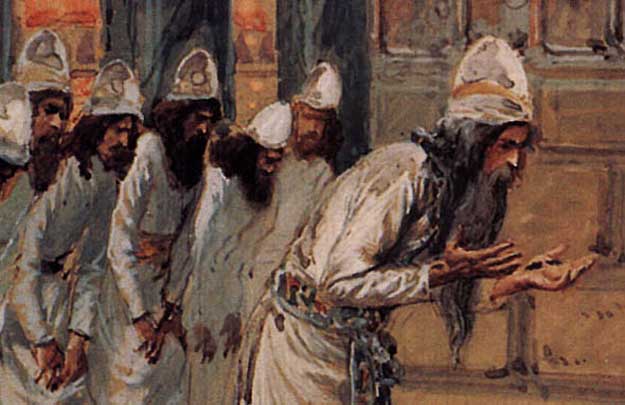Samuel gets pissed at Saul for being impatient and offering a sacrifice too soon. From Outset Ministry
I guess old Saul started getting a little power hungry, or he was starting to displease the clergy. Chapter 13 starts off with Saul sending troops to take out the Philistine garrison in nearby Geba. Naturally, Philistines in surrounding areas were pissed after hearing about this, and started raising an army against the Israelites.
The Israelites were starting to panic, and started hiding all over the place: in caves, in forests, wherever. Those who were with Saul stayed with him, though they too were a little scared. Of course, Saul did what any Bronze Age ruler would do when the odds were stacked against him. He gathered a bunch of animals, and offered them up as a sacrifice.
When finally Samuel came around, he approached Saul and told him he screwed up big time. What was his big mistake? Aside from starting another war with the Philistines, Samuel made the burnt offerings too soon. I know what you're thinking. GASP! How could he?!?
Samuel said that Yahweh must have made a mistake. Even after all the signs which pointed to Saul, apparently he was the wrong guy! Samuel says, "But now thy kingdom shall not continue: the LORD hath sought him a man after his own heart, and the LORD hath commanded him to be captain over his people, because thou hast not kept that which the LORD commanded thee."
This is a prelude to a future chapter. After showing that he was willing to take matters into his own hands, and not consult the clergy, the real powermongers (the clergy) decided that Saul was not the easily controlled puppet whom they thought he'd be. That's just my reading of it. They will eventually bring in another king, who will be far more pious then Saul.





